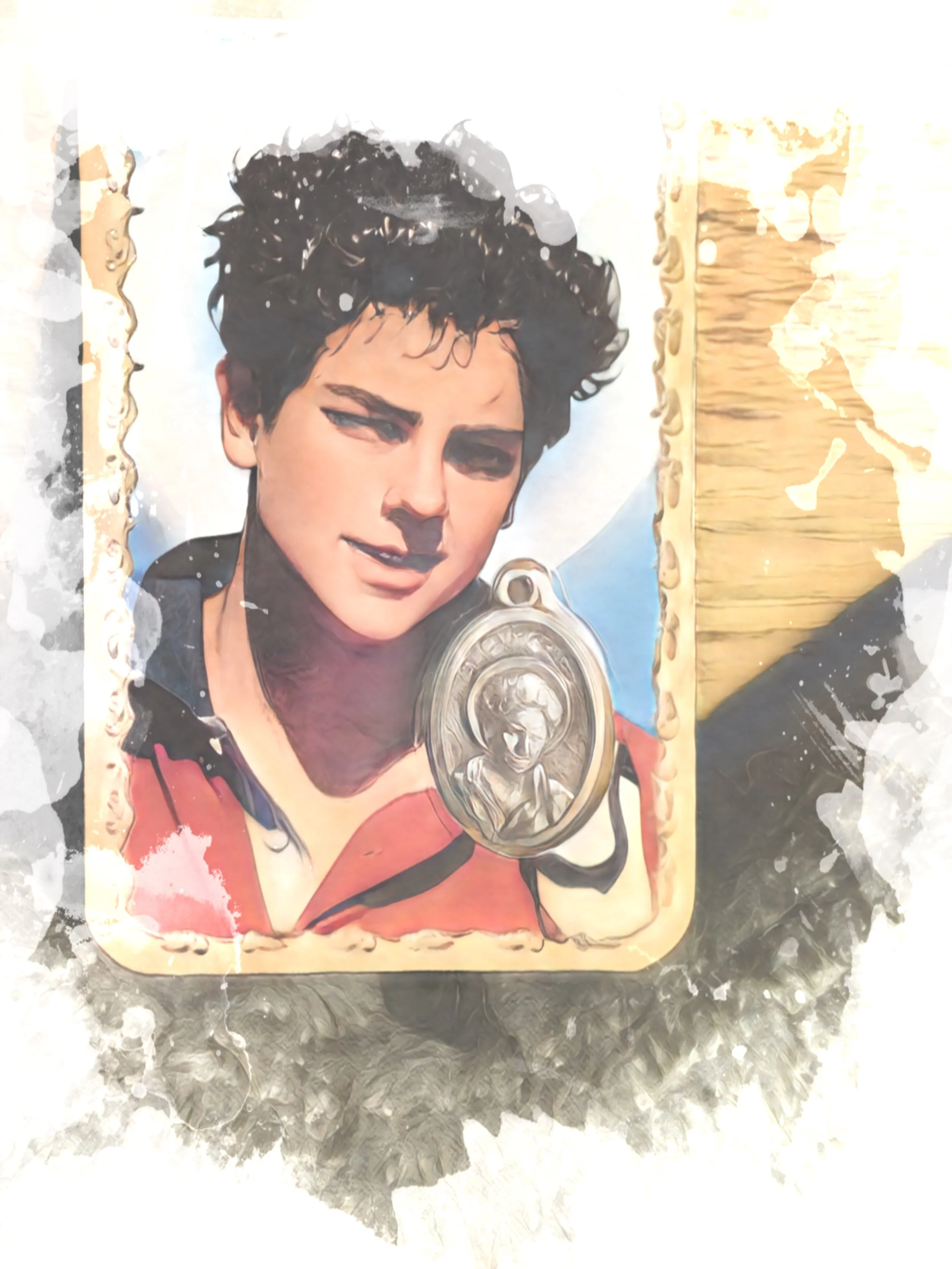The Boy and the Blessed
In honour of Blessed Carlo Acutis, who will be canonized this weekend, as a sort of novena, each day I will publish a chapter of my novella honouring him as a saint so needed for our times.
Chapter One: The Hallway
The boy with the gun had never felt less like himself.
He stood in the school hallway, fluorescent lights buzzing above, the smell of dust and disinfectant thick in the air. He had rehearsed this moment a hundred times in his head, lying awake at night, scrolling through forums where other ghosts like him whispered about payback. But now that it was here, the gun heavy in his hands, he felt like a puppet dangling from unseen strings. His chest heaved, sweat ran down his temples, and his stomach clenched with a kind of nausea that wasn’t about food. It was about being filled with something too big, too dark, too strong.
He thought: This isn’t even me anymore. It’s like something else is wearing my skin.
Then he heard footsteps.
And there he was.
Just a kid. Hoodie, sneakers, hair that fell messily over his forehead. His face wasn’t radiant or glowing or anything like that. He looked—ordinary. Like one of those kids who hang around after school, waiting for a ride. Except there was something different. Calm. Steady.
“Hey,” the boy said, nodding at the weapon. “That’s a heavy thing to carry.”
The shooter jerked the gun higher. “Don’t come closer.”
“I’m not here to stop you,” the stranger said, sliding his hands into his hoodie pocket. “Just figured you shouldn’t be alone right now.”
The words hit harder than a bullet. Alone—that was the story of his life. Alone at the lunch table. Alone when his dad left. Alone at night with the blue glow of the screen and the endless voices that promised rage was power. Nobody had ever stood with him before.
But this boy was standing here now.
The shooter’s voice cracked. “You don’t get it. It’s like... I’m not even me anymore. Like something else is driving. And it wants blood. And I can’t make it shut up.”
The boy leaned back against the lockers, tilting his head slightly. His eyes were soft, not afraid. “Yeah. I know that voice. It tells you you’re nothing. It feeds on anger, makes you think the only way to matter is to hurt. But that voice is a liar. It’s not who you are.”
The shooter barked a laugh, bitter and broken. “And what do you know about it?”
The boy’s eyes flickered—not pity, but something deeper. Recognition. “I know what it’s like to feel invisible. To want to disappear. To carry something inside that doesn’t belong to you. I know what it’s like when the dark feels louder than everything else.”
The shooter’s throat tightened. Nobody had ever said it out loud like that.
The Boy
He remembered the day it all broke open.
It wasn’t the shoving in the hallway, or the tripping in gym class, or even the cruel laughter when he dropped his lunch tray. He could almost live with that. But one afternoon, in the locker room, three boys cornered him.
They’d found his sketchbook. His private one—the one he never showed anyone. Pages of dragons and cities, a few secret poems. And one drawing of a girl from class.
They passed it around like evidence, howling. “Look at this freak. He thinks anyone would ever look at him.”
One of them read his poem out loud in a mocking falsetto. The others howled.
And then the precision cut: the biggest boy tore the page from the book, folded it neatly, and shoved it down the front of his pants. “This is where your little love poem belongs.”
The others doubled over, shrieking. He stood frozen, his face burning, his chest tight as if the air had been sucked out of the room.
It wasn’t just humiliation. It was surgery. They had sliced into the softest, most hidden place in him and left it bleeding.
That night, he burned the rest of the sketchbook in a metal trashcan behind the garage. Watching the pages curl into ash, he swore he would never give anyone that kind of power over him again. Never.
Carlo
Carlo had a different day—one that marked him just as deeply, but with something else.
He was maybe twelve, walking home from school in Milan when he saw a man huddled near a trash bin. His clothes were dirty, his face gaunt, his hand trembling as he held a cup that no one stopped to fill.
Carlo hesitated. Kids weren’t supposed to talk to strangers, his mother had said. But something in him pulled forward. He crouched down, reached into his backpack, and pulled out the sandwich his mother had packed for him.
The man took it with shaking hands, tears streaming down his cheeks. He whispered, “Dio ti benedica.” God bless you.
Carlo didn’t know what to say, so he smiled, awkward and shy. Then, as he stood to leave, the man grabbed his wrist—not roughly, but with a strength that surprised him. The man’s eyes, dark and wet, locked onto his.
“You are mercy,” he said. “You are wild mercy.”
Carlo carried those words home like a secret fire in his chest. Later, he would build websites cataloging miracles. Later, he would offer his cancer as a prayer for the Church. But on that day, mercy ambushed him on the sidewalk, and it never let him go.
The hallway stretched silent between the boy with the gun and the boy with the steady eyes. Both of them carried moments that had cut deep into their souls—one by cruelty sharpened like a scalpel, the other by mercy flaring wild and unexpected. And now they stood, face to face, on the knife’s edge of what might come next.
